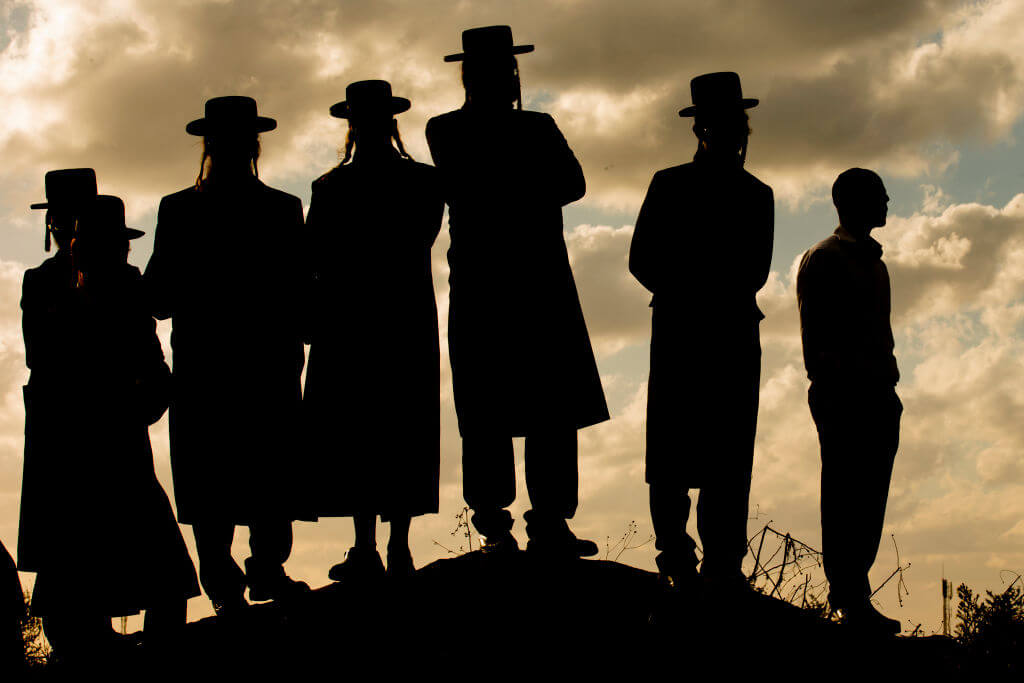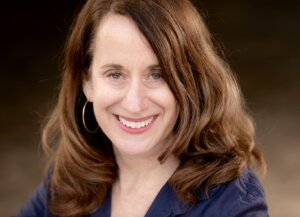Survey: Large majority of Israeli Jews want Haredim to serve in the military
Experts say debate over the long standing exemption could topple Netanyahu’s government

Haredi men gather in Haifa. Photo by Jack Guez/AFP via Getty Images
A survey published Sunday showed 70% of Israeli Jews want to end the longstanding blanket exemptions from military service for Haredim, an issue that has caused growing fissures across society and threatens to topple the most right-wing government in the nation’s history.
The survey, conducted in February by the Israel Democracy Institute, showed a sharp jump from 2018, when 60% said they wanted to end the loophole for Haredi men who devote their lives to studying Torah. Tamar Hermann, IDI’s public opinion director, said the rising opposition to the exemption among centrist Israelis, including the modern Orthodox, makes it the issue most likely to drive apart Prime Minister Benjamin Netanyahu’s governing coalition, which includes Haredi parties.
“This may eventually turn out to indicate some kind of realignment of the political system in Israel,” Hermann said in an interview. The shift most favors Benny Gantz, a center-right former chief of the Israel Defense Forces, she added, noting that as a member of Netanyahu’s war cabinet, Gantz may effectively have veto-power over whether the military exemption policy will be extended past its expiration at the end of this month.
Israel’s practice of excusing Haredi men from the military draft stems from a deal their political leaders struck with the country’s founding prime minister, David Ben-Gurion, in 1948. The community’s rabbis have argued since that Torah study, rather than defense efforts by the military, keep Israel safe.
But what was a small minority in Israel’s early years is now the nation’s fastest-growing tribe, with Haredim making up 24% of draft-aged citizens. And Haredim are generally exempted regardless of whether they actually study in yeshiva full-time.
Critics of the exemption call for “equality in the burden” of military service. That argument is especially poignant in times of war; since the fighting in Gaza began after the Hamas terror attack on Oct. 7, the IDF says, 248 Israeli soldiers have been killed and 3,067 wounded in battle.
About 3,000 Haredi Jews volunteered for reserve duty in the aftermath of the Hamas attack, though some faced harassment by their neighbors.
Sunday’s poll comes a week after Haredi protesters blocked a highway near the heavily Orthodox city of Bnei Brak to oppose the draft.
“If you force us to go to the army, we’ll all move abroad,” Israel’s Sephardic chief rabbi, Yitzhak Yosef, said Saturday night.
The rabbi had made headlines last year for saying that secular Israelis “don’t find fulfillment in life” and “get stupid” for eating non-kosher food.
On Sunday, opposition leader Yair Lapid, whose first political campaign in 2013 was centered around the Haredi draft issue, called for Yosef’s ouster. Gantz also criticized the rabbi, saying in a statement:
“Everyone should take part in the sacred right to serve and fight for our state, especially in this difficult time. Even our Haredi brothers.”
The IDI survey showed that 19% of Haredim support an end to their community’s long standing exemption. Secular Jews had the highest portion opposing the exemption, at 86%. For those who self-identified as “traditional non-religious,” it was 77%; “traditional religious,” 52%; “national religious,” 65%.
The poll did not specify what changes respondents want in the policy.













